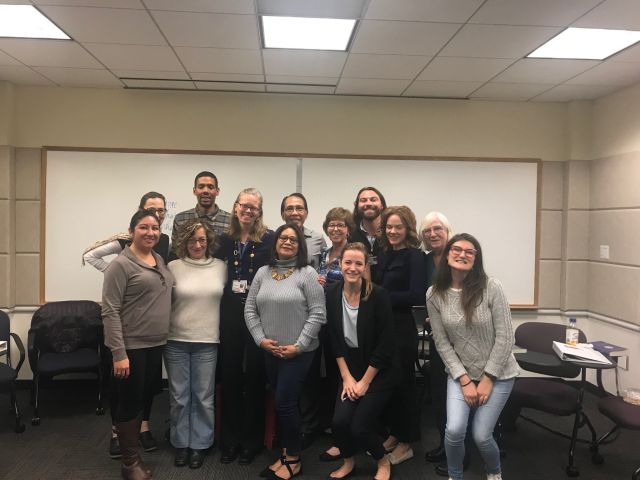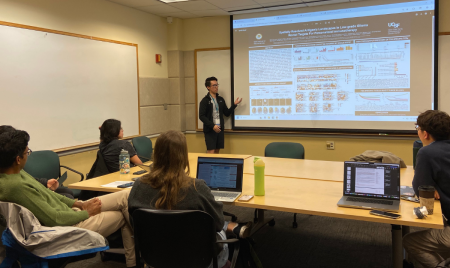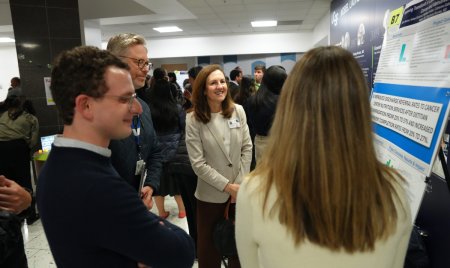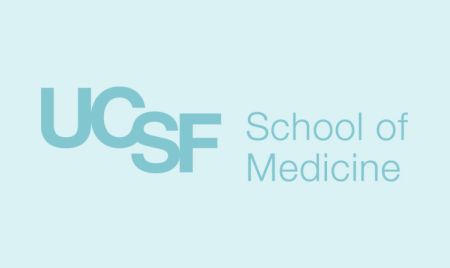No One Dies Alone Program Offers Patients End-of-life Care

Spiritual Care Services Team at UCSF
As of September 2024, the No One Dies Alone program is on permanent hiatus.
“He was my first patient to pass away,” says Cynthia Tsai, MD, a first-year resident in the UCSF Department of Medicine.
“When we admitted him to the hospital for cancer treatment, he was in good health, making jokes, eager to get over this illness and move on with his life. But then his condition worsened. When it became clear we couldn’t cure him, he requested comfort care and we tried to reach to family members. But my patient didn’t have any family connections; unfortunately, we were unable to reach anyone.”
As medical students, we are taught that the end-of-life process must involve shared decision making with the patient, family, and health care team. Yet this isn’t always possible.
For this reason, Dr. Tsai and her care team partnered with No One Dies Alone (NODA), a volunteer program that serves patients who are alone in their final days of life. At UCSF, any health care provider can activate the NODA process by paging the chaplain on call, who connects volunteers to patients.
“Many patients have traveled a long way to UCSF. Their family members may be estranged or unavailable,” says the Rev. Peter Yuichi Clark, PhD, chaplain and director of UCSF’s Spiritual Care Services, who helped implement NODA at UCSF.
“Some of our patients are homeless, marginally housed, or lacking economic resources. Others are simply isolated. For all patients, this is a huge moral imperative. Everyone faces death and must do so in their own way. But they shouldn’t be alone if they don’t want to be,” says Dr. Clark.
NODA volunteers undergo a rigorous training process and can be contacted at any time, day or night. They accompany patients by reading sacred texts, playing music, or simply providing companionship.
“I volunteered with a patient who had an acute cardiovascular event,” says Lia Akhilanda, a clinical social worker in the UCSF inpatient oncology unit and NODA volunteer. “He had indicated he had a Christian background before becoming nonverbal, so I held his hand and read scriptures.”
Was it hard accompanying a dying patient whom she hadn’t known in life?
“It can be challenging to know how to support someone when they cannot express themselves. But in a way, this also allows us to connect with someone on our most simple and profound human level."
NODA was originally founded in 2001 at Sacred Heart Medical Center in Eugene, Oregon. Since then, the program has spread to over 400 institutions and began at UCSF in 2017.
Maureen Carroll, RN, helped bring the program to UCSF. As a nurse and Transitional Care Manager in the UCSF Heart Failure Program, she has witnessed many patients dying alone. “Some elderly patients have outlived their family and friends. Others are homeless or have suffered psychological issues that have left them with no support.”
I asked Maureen if her homeless patients were more likely to be alone at the end of their lives.
“I grew up in San Francisco and have worked at UCSF for 23 years and have seen an increase in the number of patients who are isolated and alone. It can be a real struggle to be elderly in the City as it is so expensive, and can be difficult to get around, especially if you have no support of any kind. It breaks my heart. Birth and death are two sacred times in one’s life, and not a time to be all alone.” I was so excited when Dr. Clark mentioned the possibility of developing the NODA program here at UCSF.
NODA returns dignity to a phase of life that is unavoidable, and offers support to people who might not otherwise be comforted at the end of life. Dr. Cynthia Tsai couldn’t be happier the program exists.
“In the last weeks of my patient’s life, we had big conversations. Did he want a ‘Do Not Resuscitate’? Did he want to switch to comfort care?”
Dr. Tsai knew that these questions address the logistics of death, but not the existential dread.
“As a physician, I desperately wanted to spend every moment with this patient in his final days. I wanted to sit by his bedside all the time. I wanted to just be with him. He was dying of cancer, alone.”
She paused.
“But what I ended up doing was writing notes and calling consults and seeing other patients. You need to keep doing these things to take care of other people who are also suffering… What NODA does is so, so important.”









